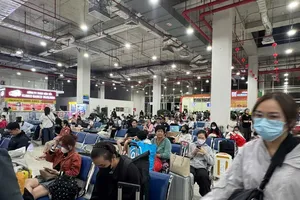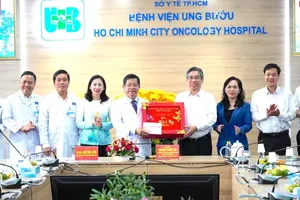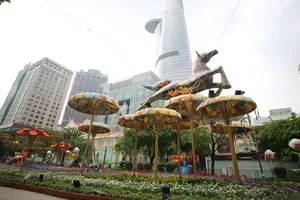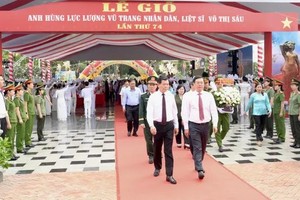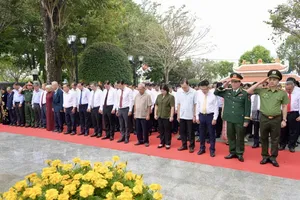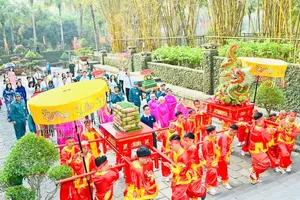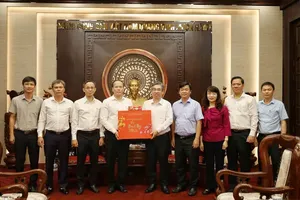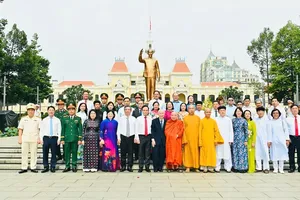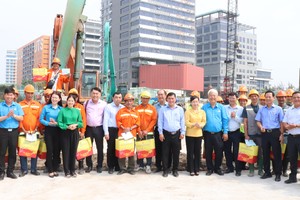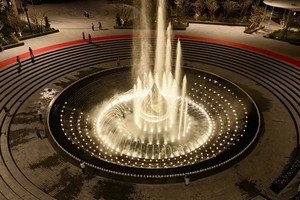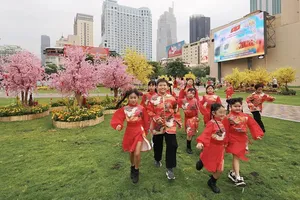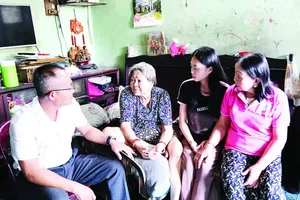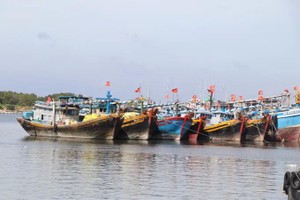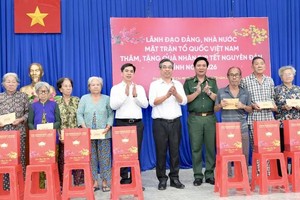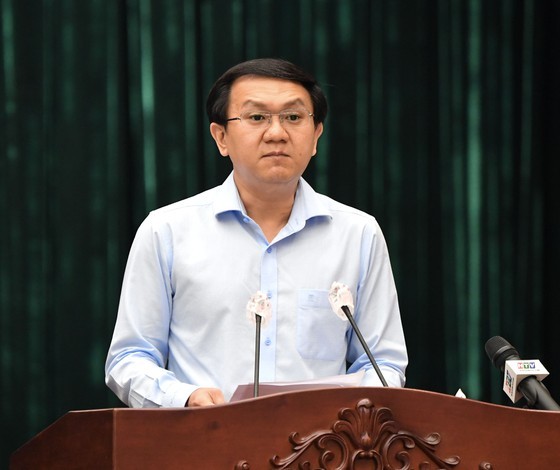 Director of Ho Chi Minh City Department of Information and Communications Lam Dinh Thang
Director of Ho Chi Minh City Department of Information and Communications Lam Dinh Thang
He made the statement at a conference on the implementation of social-economic development tasks in 2022 organized by the People's Committee of Ho Chi Minh City on January 8. Leaders of departments, agencies, Thu Duc City, districts, and corporations gave comments, proposing many solutions for the city’s socio-economic recovery and development.
Attending were Secretary of the city Party Committee Nguyen Van Nen, Chairman of the People's Committee in HCMC Phan Van Mai, Chairwoman of the People's Council Nguyen Thi Le and Deputy Secretary of the municipal Party Committee Nguyen Ho Hai.
Director of Ho Chi Minh City Department of Information and Communications Lam Dinh Thang said this year, the Digital Transformation Program and the Project to build Ho Chi Minh City into a smart city will focus on reorganizing the steering mechanism and forming foundational and leveraged policies. The city needs to unify the Steering Committees on digital transformation, building smart cities, and e-government into a single Steering Committee headed by the Chairman of the Ho Chi Minh City People's Committee to unify the direction.
Along with that, the city focuses on building digital government, especially in the field of administrative reform, to provide online public services in an effort to facilitate people and businesses that deal with administrative procedures.
In particular, the city will deploy a unified mobile application to enhance the interaction between the government and residents and vice versa.
Accordingly, people only need to use a single app to communicate with the city government in all areas; moreover, they can send their complaints through the 1022 switchboard and receive public service results, and look up information on the general map, assessment of satisfaction for each commune and ward.
Furthermore, city administrations can use the application as a communication tool to carry out surveys at a low cost. City leaders can solve people’s complaints and recommendations. This is also one of the solutions to develop digital citizenship and digital society.
Regarding the data update, the city focuses on data connectivity at a city-wide scale and developing a shared database warehouse. The city continues to improve technology solutions, exploit the shared data warehouse in the prevention and control of the Covid-19 epidemic and economic recovery.
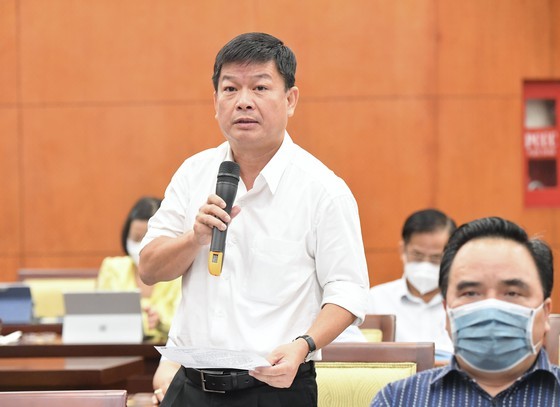 General Director of Ho Chi Minh City Service Company to Foreign Missions (FOSCO) Nguyen Tuong Minh
General Director of Ho Chi Minh City Service Company to Foreign Missions (FOSCO) Nguyen Tuong Minh
In the process of digital transformation, there will be many people who can’t keep up with the general movement of society, including the poor.
The city currently has more than 144,000 poor people; many of them don’t have smartphones. Therefore, a smartphone support program for the poor, low-income people, and people with difficult circumstances should be launched as not to leave anyone behind in the rapid development of digital transformation, creating conditions for the development of digital citizens and digital society in Ho Chi Minh City.
Chairman of the People's Committee of Thu Duc City Hoang Tung said that through the practice of building an urban government in Thu Duc City, in order to ensure the requirements and tasks in the coming time according to HCMC’s general development orientation, the People's Committee of Thu Duc City proposed the HCMC People's Committee petition to the Central Government soon issue appropriate mechanisms and policies to create favorable conditions for Thu Duc City’s development.
As per the People's Committee in Thu Duc City, the central government should adjust the regulations on the number of civil servants and part-time workers at the commune level in consideration of population size in order to arrange payroll in accordance with reality at the grassroots level.
According to General Director of Ho Chi Minh City Service Company to Foreign Missions (FOSCO) Nguyen Tuong Minh, in order to improve the investment environment and assist businesses, he recommended that leaders of Ho Chi Minh City spend time periodically working with enterprises so as to grasp the activities of enterprises, difficulties and obstacles to promptly solve.
In the process of operation, businesses face many difficulties, but responsible departments and agencies in Ho Chi Minh City have had dilatory action causing businesses to lose their opportunities.
Therefore, he recommended that departments and branches must have clear instructions for businesses to implement when assisting enterprises to remove barriers. In the planning work, Ho Chi Minh City should set aside a land fund to build the diplomatic corps area, because the city is a large socio-economic center but currently there has been no land fund for this.
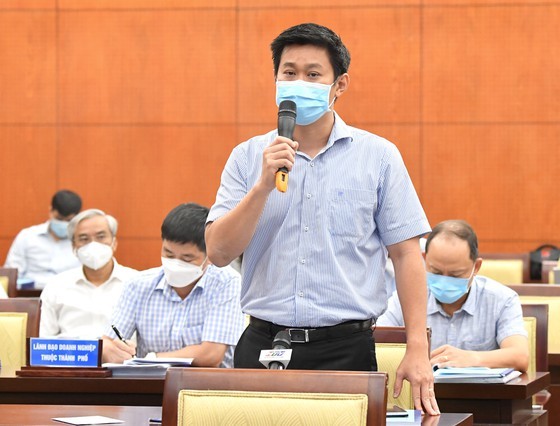 Head of Ho Chi Minh City Industrial and Export Processing Zones Management Board Hua Quoc Hung
Head of Ho Chi Minh City Industrial and Export Processing Zones Management Board Hua Quoc Hung
Head of Ho Chi Minh City Industrial and Export Processing Zones Management Board Hua Quoc Hung said that in 2022, Ho Chi Minh City Industrial and Export Processing Zones Management Board focuses on two major issues. Firstly, the Advisory Board for Ho Chi Minh City and the Government established a 668-ha new Pham Van Hai Industrial Park with a scale of and 90-ha residential area and worker dormitory. For a long time, Ho Chi Minh City has not had a new industrial park, while other provinces have a lot of land for industrial parks.
Specifically, from 2010 to 2015, Ho Chi Minh City took the lead in the group of provinces and cities in terms of industrial parks, leading the country in the industrial index.
But from 2016 until now, the industrial land fund is increasingly limited. Currently, in industrial parks and export processing zones in Ho Chi Minh City, only about 300 hectares of land can be rented. Therefore, city leaders should pay heed to the creation of a land fund to attract investment in the future.
Secondly, the Board will focus on advising city administrations to gradually transform industrial parks and export processing zones that are no longer suitable in the coming period. Because industrial parks, export processing zones in Ho Chi Minh City have been built for a long time; therefore, it has gradually become obsolete.
Currently, the Board has worked with the University of Economics HCMC to develop a project to convert industrial parks and export processing zones for the period of 2021 - 2030 and a vision to 2040 when the first industrial park investment is terminated.
The Management Board of Industrial and Export Processing Zones in Ho Chi Minh City proposes to the City People's Committee to decentralize in many sectors; especially in an environment.
